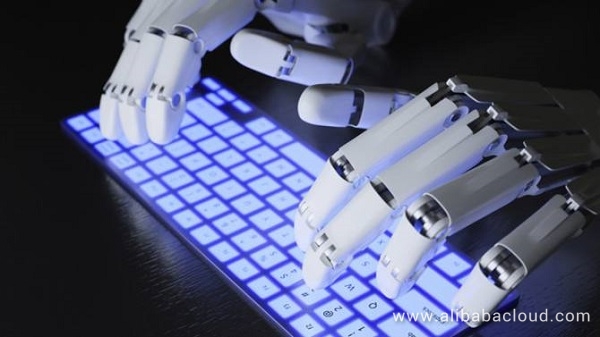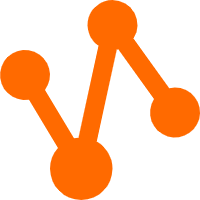Professor Francesca Rossi, a prominent researcher in artificial intelligence (AI) at IBM, believes that human/computer symbiosis will be the best way for humans to use AI in the future. According to Prof. Rossi, the healthcare industry will be transformed by AI the most in the near future.

IBM's Watson became famous on the quiz show Jeopardy! in 2011, when it first defeated the two most successful human players and subsequently won again in the human/computer finals. Watson initially received "training" in English and was developed to accept "training" in 9 languages including German, Korean, Spanish, Japanese, and Arabic. But IBM Watson is not only for fun, it is the "brain" for IBM's healthcare AI services. In 2017, it is expected that Watson will indirectly serve 1 billion consumers. What are the profound effects of AI such as IBM Watson may have on humans and humanity?
Due to the development of deep learning algorithms, mass data, and computing capabilities, AI's applications have become very widespread. Almost all industries, such as transportation, education, medical care, finance, manufacturing, law, retail, and logistics either have been or will be profoundly affected by AI. The revolution brought about by AI will be the biggest since the industrial revolution. For the healthcare industry, AI can read more data and information to help doctors improve their decision-making accuracy.
In developing countries, where medical conditions are poor, AI can play a more significant role in assisting doctors in making diagnoses in the absence of information or data, or in helping doctors who are not well-trained to make them more professional. AI can help medical researchers speed up research efforts through simulation and big data, allowing researchers to make better predictions based on historical data. AI can also be used to improve education in healthcare, as well as assist physicians in diagnosing diseases in real time.
Professor Francesca Rossi believes that going forward, human/computer symbiosis will be the best way for humans to use AI. Humans and computers possess their respective strengths and can be complementary to each other. Currently, medical professionals have better intuition and judgment as compared with AI. This skill can be used to narrow down the scope of a treatment or diagnosis, which AI can then run an in-depth simulation to provide the most accurate results.
Computers are better than humans at patent discovery, statistical reasoning, and large-scale computational reasoning. By combining human intuition and computer intelligence, medical research can be significantly improved.
Professor Francesca Rossi gave several examples of how humans can make better decisions with the help of computers as follows:
Concerning the study of Amyotrophic Lateral Sclerosis (ALS), doctors need to test whether genes are related to ALS, the computer randomly detects relationships between all genes and ALS based on all data and information provided by humans, and gives the top 10 gene rankings it believes are related to ALS. After confirmation by the doctor, eight genes among the ten genes selected by the computer turned out to be genuinely related to ALS, and 5 of these were genes whose connection to ALS was previously unknown to humans. Computers can not only help humans to process data but can also help artists create. After seeing the architect, Gaudi's artistic architectural in Barcelona, the computer understood Gaudi's style and gave suggestions on the shape, form, and material of the sculpture. Then artists made Gaudi-style sculptures based on these suggestions.
"AI will reconstruct almost all industries," says Professor Schmidhuber, who believes that every enterprise will change, and all civilizations will change because of AI.
Currently, AI can do a lot of things, but there are many things that it cannot do. One of them is "common sense" reasoning and decision-making capabilities. In addition to some specific regions and scenarios, AI's understanding, perceiving, and learning capabilities still need to be improved. Humans can observe the world by watching videos to learn abstract concepts. For the same concept, humans can identify and use it in different scenarios. This is where AI systems have not done well.
We are still not very clear about how humans learn abstract concepts. At present, scientists are training AI through a large amount of artificially labeled data; while humans do not need to use so many images to distinguish between dogs and cats. When someone tells us what a cat and a dog look like, and what the difference between the two is, then whatever the picture of the dog or cat is, we can identify it; AI cannot do this for now. To achieve the jump from supervised learning to unsupervised learning, we must first understand how abstract concepts are learned.
Since the training of computers is inseparable from a large amount of data, AI's current learning method uses data as a core resource for decision making. In recent years, companies have been acquiring user data through consumer services such as social media, e-commerce, and other related vertical industries. This process inevitably leads to problems regarding data usage, storage, ownership, privacy, and sharing. Last year, IBM proposed the "transparency" principle and advocated the use of data reliably to train machine learning systems, and the use of compliant data in training. This is because humans need to maintain control of the system as humans still need to know how the system gets trained.
Although different companies have different business models and directions of development, the way they affect society are also different. To understand the impact of AI and develop AI applications' best practices, IBM, Amazon, Google, Facebook, Microsoft, and Apple decided to jointly establish the non-profit organization Partnership on Artificial Intelligence to Benefit People and Society, aiming to study the impact of AI on ethics (including privacy), fairness, inclusiveness, and social applications, and to provide best practices for solving related problems.
The impact of AI on the world needs to get discussed in a multidisciplinary environment. Ethical guidelines should be introduced into the design of AI systems, addressing issues such as data privacy and policies. The AI industry needs to consider opinions from end users, enterprises, universities, research institutes, governments, and civil society organizations. Proper supervision can also promote the AI industry's sound development.
Policy makers should also have a precise and objective understanding of AI's status and future, and understand AI's capabilities, potential, limitations, and challenges. The government needs to establish an interactive channel within and between industry and academia to understand the industry's current position and only then begin to consider future strategies. Policies should not be influenced by speculation nor should they be affected by overly optimistic expectations. Instead, policies should be formulated based on practical research that will guide AI to socially beneficial directions, such as applications in the fields of healthcare or climate change.
After a series of seminars by US Government and AI industry experts held in October last year, the White House released front-line reports on the future of AI and the impact of AI on employment. The U.S. Government's current practice is to understand the current situation before formulating future strategies. The European Economic and Social Committee also released a report on the impact of AI on markets, production, consumption, and employment in May this year, intending to give policy recommendations. At present, Europe and the United States have taken the lead in supervision, but they are still in the stage of policy research and legislation discussion.
Across the world, there is no uniform value for AI. Policy regulators should establish cooperative relations based on different cultures and different social needs. Regulatory policies for each country need not necessarily be the same, but international comparisons are necessary for policymakers.
As the former chairman of the International Joint Conferences on Artificial Intelligence, Professor Francesca Rossi has noted that Chinese companies, such as Alibaba, are increasingly involved in AI research. Due to cultural differences, the development of AI in different societies necessarily combines local needs and regional characteristics.
To learn more about Alibaba Cloud's AI products and solutions, visit http://www.alibabacloud.com/et
Front-End Performance Optimization with Accelerated Compositing Part 1

2,593 posts | 792 followers
FollowAlibaba Clouder - May 23, 2018
Alibaba Cloud Community - April 15, 2022
Alibaba Clouder - April 13, 2020
Alibaba Clouder - July 11, 2017
Alibaba Clouder - June 4, 2018
Alibaba Cloud Community - August 15, 2025

2,593 posts | 792 followers
Follow E-MapReduce Service
E-MapReduce Service
A Big Data service that uses Apache Hadoop and Spark to process and analyze data
Learn More MaxCompute
MaxCompute
Conduct large-scale data warehousing with MaxCompute
Learn MoreMore Posts by Alibaba Clouder